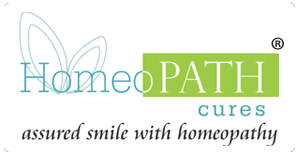Pediatric Neuropsychiatric
WHEN CHILDREN SUFFER SO DO THEIR PARENTS AND FAMILIES
It is always a painful and frustrating situation to see children suffering. They are more fragile and if the condition persists or aggravates, all concerned carry the burden for a very long time. There are also long-term effects of these childhood experiences, hence, they should be treated at the earliest and effectively.
Children may be subject to a variety of neuropsychiatric diseases and conditions that have a negative effect not only during the period of affliction but also at later stages. They include behavioural problems like Attention Deficit Hyperactivity Disorder (ADHD), development disorders like Autism, learning disability like Dyslexia, and loss of bladder control Enuresis (bed-wetting).
Homeopathy has given excellent results where many others have failed and concerned parents need to explore it for the benefit of their suffering children to move them towards a healthier life.
Pediatric & Neuropsychiatry:
ADHD:
ADHD refers to a chronic Biobehavioral disorder that initially manifests in childhood and is characterized by hyperactivity, impulsivity, and/or inattention. These symptoms can lead to difficulty in academic, emotional, and social functioning. The diagnosis is established by satisfying specific criteria and may be associated with other neurological, significant behavioral, and/or developmental/learning disabilities. All of the symptoms of inattention, hyperactivity, and impulsivity must have persisted for at least six months to a degree that is maladaptive and inconsistent with the developmental level of the child.
Inattention:
- The child often fails to give close attention to details or makes careless mistakes in schoolwork, work, or other activities
- The child often has difficulty sustaining attention in tasks or play activities
- The child often does not seem to listen when spoken to directly
- The child often does not follow through on instructions and fails to finish schoolwork, chores, or duties in the workplace (not due to oppositional behavior or failure to understand instructions)
- The child often has difficulty organizing tasks and activities
- The child often avoids, dislikes, or is reluctant to engage in tasks that require sustained mental effort (such as schoolwork or homework)
- The child often loses things necessary for tasks or activities (toys, school assignments, pencils, books, or tools)
- The child is often easily distracted by extraneous stimuli
- The child is often forgetful in daily activities
Hyperactivity:
- The child often fidgets with his/her hands or feet or squirms in his/her seat
- The child often leaves his/her seat in the classroom or in other situations in which remaining seated is expected
- The child often runs about or climbs excessively in situations in which it is inappropriate
- The child often has difficulty playing or engaging in leisure activities quietly
- The child often talks excessively
Impulsivity:
- The child often blurts out answers before questions have been completed
- The child often has difficulty awaiting his/her turn
- The child often interrupts or intrudes on others (for example, butts into conversations or games)
Role of Homeopathy:
Homeopathy helps a lot in ADHD children. If treated with homeopathy constitutionally? The way of treatment after taking a thorough case history, then this can be cured permanently.
Cause and pathophysiology
Cause
Genetics – Genetics are a factor in about 75 percent of all ADHD cases.
Toxins & others – alcohol and tobacco using during pregnancy and environmental exposure to lead are the cause of developing ADHD. Complications during pregnancy and birth—including premature birth—might also play a role.
Diet – habit of taking various junk foods colored with artificial food colors, the preservatives help to store the food for long periods are also some major cause of ADHD.
Social – children who have suffered from violence and emotional abuse, family disturbances of parents, lack of proper care and affection can develop ADHD.
Pathophysiology:
The outer surface of the brain called the cerebral cortex is divided into 4 lobes – the temporal, occipital, parietal, and frontal lobe. The frontal lobe is involved mainly with the functions of problem solving, attention, reasoning, planning. ADHD children usually have deficits in these functions. In ADHD, there is a delay in the development of certain brain structures, especially the frontal cortex and temporal lobe, which are believed to be responsible for the ability to control and focus thinking. It is also found on the lower level of neurotransmitter dopamine that could be the cause of development of ADHD.
Homeopathy Treatment:
Homeopathy treatment is based on the totality of symptoms that is a selection of the right remedy considering the total symptoms of the patient that include a physical, mental and spiritual entity. Homeopathy helps to treat the disease at its deep seated causative point, so is able to cure the disease in its actual term. In ADHD, the frontal lobe of the brain is not well developed which is responsible for the slow expression of the executive functions like problem-solving, attention, reasoning, planning etc. That’s why the child behaves in an abnormal way. Here one question comes in mind why that part of the brain responsible for executive function develops slowly while in other’s child case its development is normal though both are exposed to the same environment, diet and social attachment. Yes, genetics can play a major role, but if the genetic is the only reason for ADHD development then why only 75% of ADHD children have the hereditary etiology why not 100%. So besides that there is some hidden dynamic causative factor that plays a major role in controlling, expressing and developing of all those pathological changes at the physical level that stands for ADHD disorders. If that could be treated successfully, then automatically the pathogenesis of ADHD will gradually change to normal. The pathogenesis of slow development of frontal cortex or low synthesis of neurotransmitter dopamine is just the physical manifestation at the brain tissue level of some internal deranged dynamic causative factor which till yet has not been detected by the medical science. Its presence is not at the physical level rather at the emotional or dynamic level which needs to be fixed. A proper homeopathy treatment based on body mind spirit level of holistic approach can able to cure this disorder permanently.
AUTISM:
Autism is a developmental disorder that is characterized by impaired development in communication, social interaction, and behavior. Autism afflicts one out of every 100 to 166 children and it affects the lives of many children and their families. It tends to affect about five boys to every one girl. Autism is classified as a pervasive developmental disorder (PDD), a category of disorders that is often described interchangeably with the broad spectrum of developmental disorders affecting young children and adults called the autistic spectrum disorders (ASD). Additionally, autism can be found in association with other disorders such as mental retardation and certain medical conditions. The degree of autism can range from mild to severe. Mildly affected individuals may appear very close to normal. Severely afflicted individuals may have an extreme intellectual disability and unable to function in almost any setting.
Role of Homeopathy:
Homeopathy helps a lot in Autism condition of a child. Any autism child if treated with the classical constitutional homeopathy way of treatment, then there is the maximum chance of getting cured of this obstinate disease.
DYSLEXIA:
Dyslexia is a learning disability that can hinder a person’s ability to read, write, spell, and sometimes speak. Dyslexia is the most common learning disability in children and persists throughout life. The severity of dyslexia can vary from mild to severe. The sooner dyslexia is treated, the most favorable the outcome; however, it is never too late for people with dyslexia to learn to improve their language skills.
Children with dyslexia have difficulty in learning to read despite traditional instruction, at least, average intelligence, and an adequate opportunity to learn. It is caused by an impairment in the brain’s ability to translate images received from the eyes or ears into understandable language. It does not result from vision or hearing problems. It is not due to mental retardation, brain damage, or a lack of intelligence.
There are several types of dyslexia that can affect the child’s ability to spell as well as read.
“Trauma dyslexia” usually occurs after some form of brain trauma or injury to the area of the brain that controls reading and writing. It is rarely seen in today’s school-age population.
The second type of dyslexia is referred to as “primary dyslexia.” This type of dyslexia is a dysfunction of, rather than damage to, the left side of the brain (cerebral cortex) and does not change with age. Individuals with this type are rarely able to read above a fourth-grade level and may struggle with reading, spelling, and writing as adults. Primary dyslexia is passed in family lines through their genes (hereditary).
The third type of dyslexia is referred to as “secondary” or “developmental dyslexia” and is felt to be caused by hormonal development during the early stages of fetal development. Developmental dyslexia diminishes as the child matures. It is also more common in boys.
Role of Homeopathy:
Homeopathy treatment is based on the totality of symptoms. Thus, it helps at the root level to improve the condition of any health disorder. In dyslexia, the impairment of cerebral cortex can be improved with homeopathy treatment.
ENURESIS:
Enuresis (bed-wetting) is the involuntary discharge of urine during sleep. It is called bed-wetting after the age by which bladder control should have been established. In children, voluntary control of urination is usually present by the age of five. Enuresis is the involuntary voiding of urine at least twice a month in a child age five or older. Children vary markedly in the age at which they are physiologically ready to awaken from sleep aware of the need to urinate. This hinders their ability to hold their urine throughout the night.
If the child has never been totally dry for a year, the condition is known as primary enuresis. Eighty percent of children who wet their bed suffer from primary enuresis. Secondary enuresis is when a child has a dry period of at least a year before the appearance of the problem. The child invariably urinates during the first third of the night and remembers nothing of the occurrence.
Although in 1 percent of cases, enuresis continues into adulthood, most children are able to control urination by adolescence. Aside from wet pajamas, enuresis itself causes no direct impairment of the child’s life, but social ostracism by peers (at sleepovers and camp, for example), and anger and rejection by parents can damage self-esteem.
Role of Homeopathy:
Homeopathy remedies help a lot in enuresis conditions. There are many homeopathic remedies if given according to symptom similarities considering the totality of symptoms can cure this condition permanently.

